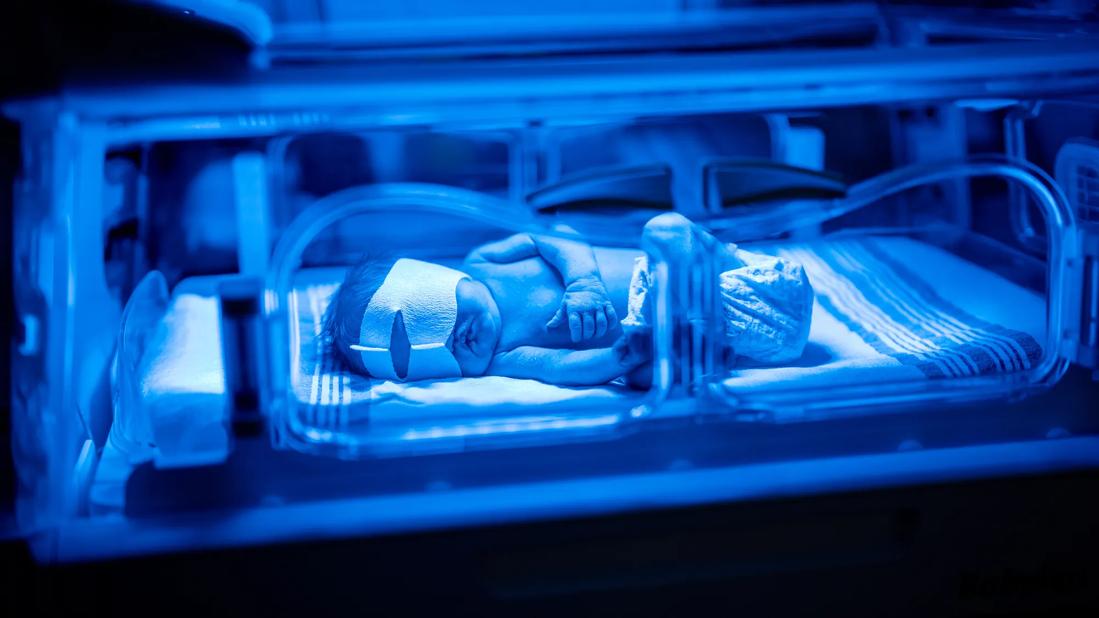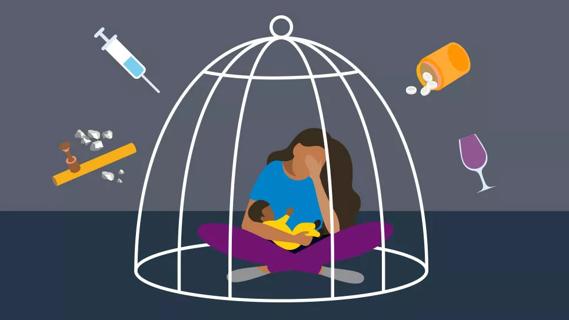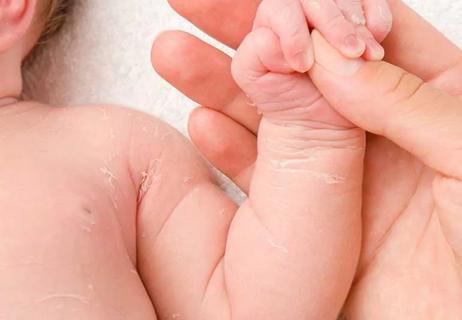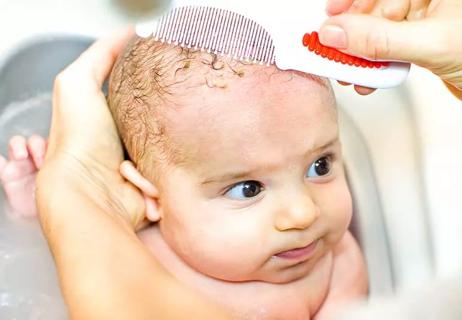Jaundice that’s present at birth or lasts more than a week should be evaluated by a pediatrician

Noticing that your newborn baby’s skin and eyes are tinged yellow can easily send parents into panic mode, especially if you’ve never seen it before.
Advertisement
Cleveland Clinic is a non-profit academic medical center. Advertising on our site helps support our mission. We do not endorse non-Cleveland Clinic products or services. Policy
This yellow discoloration is called jaundice, and in newborns, it typically sets in on the second or third day after birth. It’s a common issue that usually goes away on its own, says pediatric gastroenterologist Kadakkal Radhakrishnan, MD — but sometimes, it signifies a larger health issue.
Jaundice in newborns happens when a yellowish pigment called bilirubin builds up in their blood. Our bodies make bilirubin as they break down excess red blood cells and send it through the blood and into the liver to be processed.
“After birth, when your new baby begins breathing, the extra red blood cells they had in the uterus start breaking down,” Dr. Radhakrishnan explains. “This generates a higher level of bilirubin in all babies within a few days of birth.”
Plus, newborns’ livers aren’t always well-developed enough to process bilirubin. This causes a buildup of bilirubin, which gives a yellow hue to a baby’s face and the whites of their eyes. In babies with darker skin, this yellowing may be less noticeable in their skin and more obvious in their eyes.
Jaundice may be worse in babies who:
Most newborns develop some degree of jaundice a few days after they’re born. Usually, it goes away on its own — no treatment needed.
Advertisement
At your baby’s first doctor’s appointment (which usually happens three to five days after they’re born), their pediatrician will evaluate their jaundice level and address any concerns.
“It’s normal for parents to worry about jaundice at first,” Dr. Radhakrishnan acknowledges, “but often, it’s nothing to be concerned about.”
Jaundice usually improves on its own and doesn’t require treatment. But if it sticks around for longer than a week, it needs to be re-evaluated by your child’s doctor.
Contact your pediatrician if your baby’s jaundice:
After re-checking your baby’s bilirubin level, their pediatrician will decide whether and how to treat their jaundice. The most common treatment is phototherapy, which uses blue lights to help your baby’s liver process extra bilirubin. Babies born preterm may need more aggressive treatment than babies born at full term.
“Often, elevated bilirubin doesn’t lead to any major health problems,” Dr. Radhakrishnan says. “But very high levels, or untreated high levels, may cause brain damage, and the risk is higher for preterm babies.”
If their jaundice persists, their doctor will consider liver-related conditions that affect the flow of digestive fluid (bile) to the intestine. These problems aren’t common, but it’s important to talk to your baby’s doctor if you notice long-lasting jaundice.
If your baby has yellowish skin and eyes as soon as they’re born — or if it sets in very quickly in their first 24 hours of life — it could be something more than standard jaundice.
Jaundice present at birth may be caused by an underlying medical issue, like:
If your baby’s jaundice is noticeable on the first day of their life, it will be evaluated while they’re still in the hospital. If you’ve given birth outside of a hospital, it’s important to be sure they’re seen by a healthcare provider right away.
Eating well can help resolve regular jaundice in newborns.
“This helps them have good bowel movements, which makes sure bilirubin gets excreted through their intestine,” Dr. Radhakrishnan explains. “For this reason, your child’s doctor may advise supplementary formula feeding beyond breastfeeding sometimes, if indicated.”
If you have concerns about jaundice, feeding or anything else related to your newborn’s health, don’t hesitate to contact your pediatrician.
Advertisement
Learn more about our editorial process.
Advertisement

Gripe water isn’t regulated by the FDA, and research doesn’t support its use

When tight neck muscles give your newborn a head tilt, these gentle exercises can go a long way

Crossed eyes in a newborn are fairly common, typically harmless and usually go away

Neonatal opioid withdrawal syndrome, or NOWS, can develop when a fetus is exposed to opioids, nonmedical drugs or even some prescription drugs during pregnancy

Most parents report an improvement in breastfeeding, but there’s a chance the procedure won’t solve the issue

All babies go through a perfectly normal peeling phase in the first couple weeks

Moisturizer, a daily bath and some gentle nudging can help

Dietary and behavioral changes can help get things moving again

Wearing a scarf, adjusting your outdoor activities and following your asthma treatment plan can help limit breathing problems

Your diet in the weeks, days and hours ahead of your race can power you to the finish line

When someone guilt trips you, they’re using emotionally manipulative behavior to try to get you to act a certain way